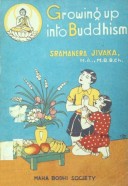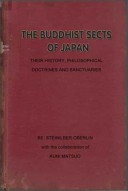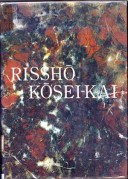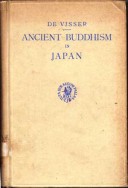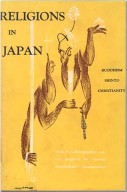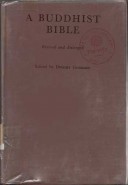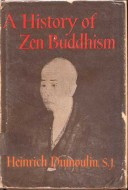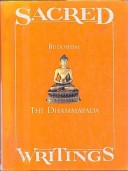Tìm Sách
Sách tiếng Anh-English >> Growing Up Into Buddhism
Thông tin tra cứu
- Tên sách : Growing Up Into Buddhism
- Tác giả : Sramanera Jivaka
- Dịch giả :
- Ngôn ngữ : Anh
- Số trang : 118
- Nhà xuất bản : Maha Bodhi Society of India
- Năm xuất bản : 1960
- Phân loại : Sách tiếng Anh-English
- MCB : 1210000003776
- OPAC :
- Tóm tắt :
CONTENTS
Publisher’s Note
Introduction
PART I
Chapter I Right Viewpoint
Chapter II Right Aspiration
Chapter III Right Speech
Chapter IV Right Conduct
Chapter V Right Livelihood
Chapter VI Right Effort
Chapter VII Right Mindfulness
Chapter VIII Right Concentration
Chapter IX Four Noble Truths
Chapter X The Three Refuges and the Five Precepts
PART II – Thoughts and Ideas
Chapter XI The Search for Truth
Chapter XII Religion and us
Chapter XIII I
PUBLISHER’S NOTE
I take pleasure in publishing this interesting book by Sramanera Jivaka, an English Buddhist monk, which he has written specially for children. Although it is for “teenagers” it can be read with profit, specially the last chapters, by even grownups among whom there are not a few to whom the following Dhammapada verse fits well:—“This man of little learning grows old like the bull. His flesh grows, his wisdom increases not”.
It is a remarkable fact that while most religions discourage clear thinking lest long accepted dogmas receive a jolt, Buddhism alone encourages a spirit of inquiry, study and correct understanding (Sammaditthi) of all facts of life as well as religious theories and dogmas.
Clear thinking is essential for progress in every sphere of activity and if this book helps the reader to do this, it will have served its purpose.
D. Valisinha
INTRODUCTION
This small book is intended primarily for idle “teenager”, (now the title of the schoolchild who has reached the upper classes) who is having a Western or Western-type education. So far as I know there is no book on the market for the young Buddhist, Westerner Eastern, and so I have tried to make it as interesting as possible with bits of scientific information and anecdotes.
The chief purpose is to make you think. The mere repetition of doctrine however extensively it may be learned by heart, does not constitute an intelligent approach to one’s religion, which must be understood and felt; that is, its principles must be understood and appreciated by the Emotions as well as the Reason.
If it makes you think, therefore, if it makes you want to know more and learn more, it will have served, at least, one purpose. If it helps you to understand and know yourself better than, perhaps, you do now, it will have served a second and even more important purpose. For, although we all think we know ourselves very well, in actual fact, we none of us do. When we can catch ourselves in the act of doing something that has become a habit and realise at that moment that we are doing it and that it is a habit, then we have taken the first step towards the primary aim of all Buddhists, self-mastery. For without self-mastery there can be no Enlightenment. Even Prince Gautama had to conquer himself before he became the Buddha!
So as you read, think! Ask! do not accept statements about your religion unintelligently. The Buddha Himself told one of His disciples this very thing. “Do not believe just because I say so. Test what I say and find out for yourself”. This is the only rational approach to any religion—Buddhism is essentially a religion of Experience so try to apply what you read to’ your own experience. Ask yourself: Have I felt like that? Do I do that? If the answer is ‘Yes’, or if it is ‘No’, at any rate you will slowly be beginning to collect information about yourself and become more of a human being and less of a machine that reacts all day to the things which happen to it.
And remember:—“Think!” is your watchword throughout.
 Facebook
Facebook
 Google
Google
 Google+
Google+
